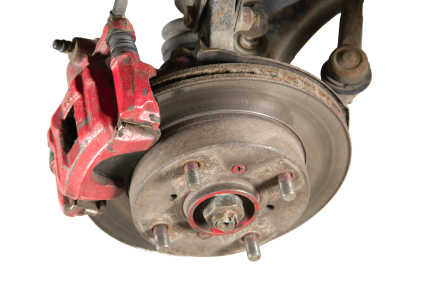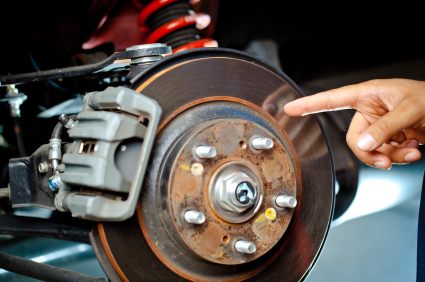Are the wheel wells of your car covered in rust spots? Rust can form in many different places on your car, but wheel wells are especially prone to rust because of the water, mud, and rocks that are constantly kicked up into them by the tires while driving. Damp conditions are ideal for rust formation and–if you do not treat it–the rust can spread and eventually eat holes through the metal of your car. Here are some suggestions that explain how to fix rust in wheel well and prevent rust buildup in your wheel wells where your car is most vulnerable.
The first step is to get a scrubbing brush with a long handle and physically scrub as much of the rust off of the wheel well as possible. You may need to lift your car up with a jack and remove the tire to get at the rust depending on its location. You can purchase brushes designed specifically for this purpose from most home improvement stores in the auto section.
Next you need to get a bottle of WD-40, which is also available in any home improvement or hardware store. Spray any remaining rusted areas with the WD-40 and let it sit and soak in for 15 – 25 minutes. This step helps to soften the remaining rust so you can do another round of scrubbing.
If there is still remaining rust that you are unable to scrub off, you may want to purchase an acid-based rust remover from the hardware store. You can apply this remover with a paper towel to all of the remaining rusted areas, but be sure to put on gloves beforehand. Let the remover sit for 15 minutes and use your scrub brush to scrape away the last of the rust.
Once all of the rust has been removed, you might want to apply an undercoating to help prevent new rust from forming. You can purchase rust proofing undercoating spray at the hardware store. While wearing gloves and safety glasses, simply spray the undercoating on the surface of your wheel well, using short spurts to avoid over spraying. Allow about 15 minutes for the coat to dry and apply a second coat for additional protection.
If you need more help, TalkLocal can connect you with local auto repair services.






